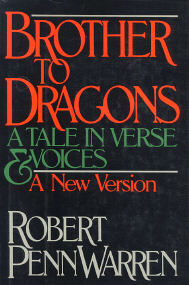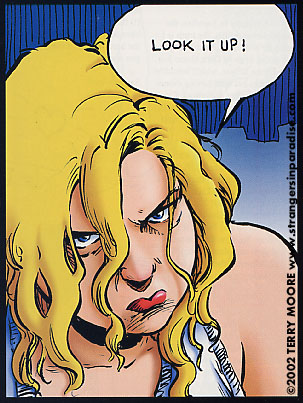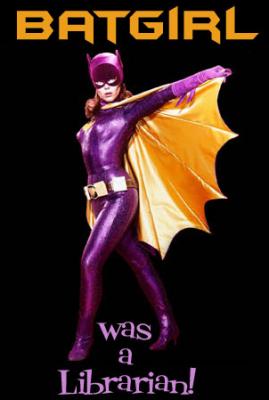
[There are several versions of this book. The version I read is from 1979]
[The title is a Biblical reference, Job, 30:29, listing his reasons to mourn: "I am a brother to dragons and a companion to owls."]
The year is 1811, "annus mirabilis," the year during which history records strange happenings. Floods change the courses of rivers, create lakes, sickness strikes the valley dwellers, squirrels migrate in huge numbers, pigeons scour the grain fields, a total eclipse of the sun, tornadoes, hurricanes, earthquakes rock the county. And in December of 1811 a savage crime was committed. A negro slave was brutally murdered. The perpetrators of this crime were the nephews of Thomas Jefferson--sons of his sister Lucy. Lilburne and Isham had the slave tied to a table in the meat-house and hacked him to death with an axe, casting his mutilated body parts into a roaring fire before the eyes of the other slaves. The supposed reason for this brutality was that the slave had broken a favorite pitcher of Lilburne and Isham’s dead mother. Eventually news spread about the murder (a fire-blackened bone was discovered, having been sniffed out and gnawed by a curious dog) and the brothers were arrested and indicted. After they were released on bail, Lilburne convinced his younger brother to engage in a suicide pact, according to which each brother would fire a fatal shot simultaneously into the other. Things did not go according to plan, and Lilburne was killed, while his brother survived unscathed. Isham was taken into custody again, but escaped and fled before being brought to trial.
Jefferson, despite the fact that the act was common knowledge, apparently could not bring himself to comment on or even acknowledge it, possibly because he could not accept that he, such a wealthy, prominent leader, could carry within his blood the capacity to perform such evil.
Robert Penn Warren in this long narrative poem examines the fact that while we are capable of great good, we are also capable of despicable evil. The events leading up to the murder, and the more astonishing aftermath, provide the framework for the poem. He uses multiple voices in his poem in order to give the reader a sense of fairness and lend more authority to his text. So we have a list of characters that includes Thomas Jefferson (the third President of the United States), Meriwether Lewis (with Clark, the co-commander of the Voyage of Discovery), Colonel Charles Lewis (Husband of Lucy Jefferson), Lucy Jefferson (sister of Thomas Jefferson), Lilburne Lewis (son of Charles and Lucy), Letitia Lewis (wife to Lilburne), Aunt Cat (a slave in the household of Charles Lewis, and black Mammy to Lilburne), Brother (to Letitia Lewis), Isham Lewis (brother to Lilburne), and John (the young slave). Warren himself is also a participant in the story as he moves in and out of the text contributing to the dialogue. Instead of setting the poem in 1811 and making it a traditional historical narrative, he has a set of characters meeting at a place and time not named to try and make sense of their actions.
Warren alludes to a human nature at odds with Jefferson's vision of perfectible humanity. But it is the inherited violence of slavery that profoundly impacts everybody in the poem, black and white. The ramifications of slavery are so widespread that all the poems figures are somehow complicit in the brutal act. And by inference that complicity extends to every reader.
This narrative poem says a lot about the human condition and the nature of the human heart. It's an extraordinary book.












































